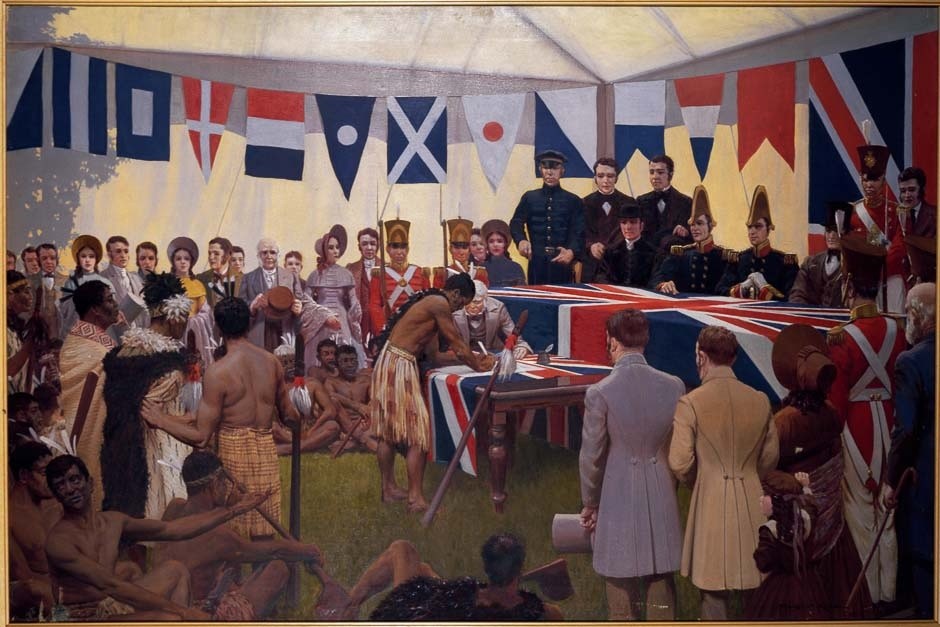There is an ongoing debate that is certain to heat up in the next year around the Treaty Principles. These are perhaps going to be put up for a vote, but if they are not, ACT is still likely to make the next election itself a referendum on them, arguing for more seats in the coalition to give them the bottom line they want.
The problem with the Treaty of Waitangi is that it's a product of 19th century liberalism. Hobson was told to get a treaty that would give Britain sovereignty over the land and thus keep the French out, take charge of land purchases to head off the New Zealand Company's plan for an independent capitalist state, and generally make the British feel good about protecting the native people while assimilating them into the global Anglican empire.
The treaty did a pretty good job of this and the Rev. Henry Williams along with his son had a key hand in making this a reality. Williams would later write that the treaty was to be the Magna Carta of the Maori people.
By this time the Magna Carta had been reimagined as the basis of English rights and the liberal ideals of the Anglo-Saxon people. There are some interesting parallels between the Magna Carta and the Treaty of Waitangi in that both fell by the wayside and were nullified rather quickly in the immediate aftermath of their signing, only taking on a spiritual significance much later.
Today the "principles" of the Magna Carta aren't about rights for bishops and barons, nor even the rights of common Anglo-Saxon people. The principles of the Magna Carta are used as the basis for legal equality and liberal human rights for all people of all races who live in a country that descends from the common law tradition.
The problem that Te Pati Maori are trying to solve when they say "honour the treaty" is somewhat unclear. They appear to be intentionally vague about it, with the key demand being that representatives of the Maori race should get to make the decisions about what happens in New Zealand.
They want a piece of the action—or in this case a veto over the whole pie.
The problem with the treaty is that it doesn't give them a piece of the action, not in the text nor the intent.
Sir Aparania Ngati warned about this in his 1922 pamphlet:
To all those who are agitating under the Treaty for remedies for our grievances, I say be careful lest you awaken the legal experts of the Pakeha people, who will say: "Let them have what they are asking for; let the purport of the Treaty be exercised to the very end: Put the same levies on the Maori as are levied on the Pakeha".
"Equal rights for all" has become the rallying cry from both the libertarian ACT Party and nationalist NZ First Party as a solution to the treaty issue.
The reactionary war cry of "toitu te tiriti" is the New Zealand left asking to be hoisted by their own petard.
There is nothing wrong with Maori running an illiberal and anti-democratic campaign that aims to change how New Zealand is governed, but they can't do it by tying themselves to a liberal document.
If you want to end democracy and restore the glories of hereditary aristocracy then you're going to need a war cry that's a little more radical. Even as a traditionalist I'll need a little more convincing that we'll be better off under your new aristocracy than the liberal democracy we've got.
After you've won me over, good luck convincing the rest of the country to ditch liberalism.
